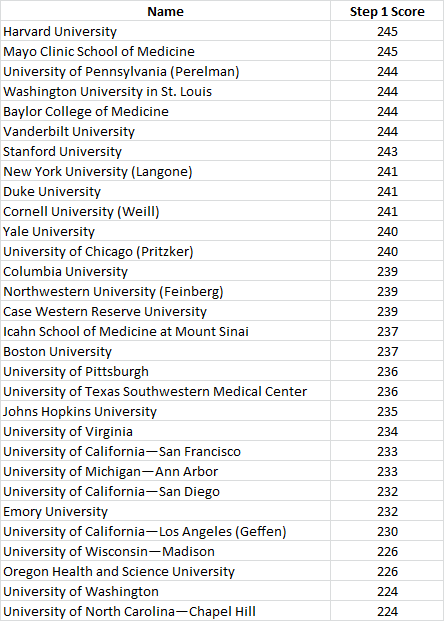I don't think it's about harder/easier test, it's percentiles so the relative rarity stays the same. A 265 step1 is exactly as common, relative to the pool, as a 38 MCAT. It's the absolute numbers I think, that start becoming more important.
Say you're a school like WashU for example and you want to hit a top 1% median. Not too hard to do when that means filling 60 seats drawing from 1,000 test takers with that score (many more than needed even after accounting for the fractions that will have low GPAs, won't apply to midwestern schools, etc).
Now look at something like ENT. The median for matched is "only" at the 84th percentile...but the year had 358 applicants for 304 spots. The typical ENT program can't demand that their seats be filled by top 1% or top 5% step 1 scores while still asking for the rest of the package. Their seats would go empty. When you're dealing with a small absolute number of top x% scores, most of whom won't be interested in a given competitive specialty, it's just not possible to keep the typical percentiles the same as we see with competitive MD admissions.


